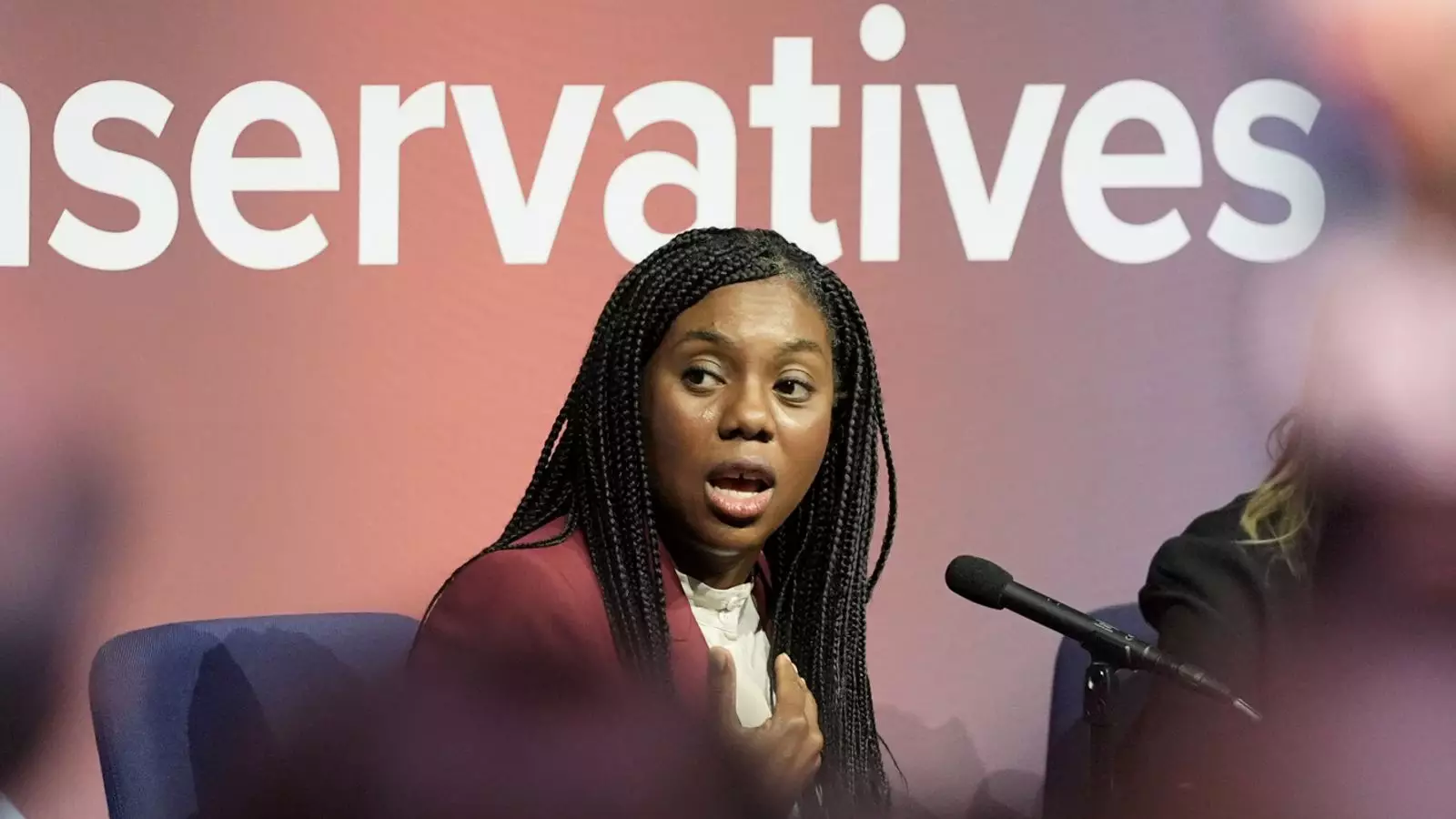The recent statements made by Kemi Badenoch, a prominent figure in the Conservative Party and a candidate for its leadership, have ignited a fierce debate regarding the integrity of civil servants in the UK. Her claim that 5-10% of civil servants are “very bad” and might deserve imprisonment for leaking official secrets has created quite a stir, attracting not only the attention of political commentators but also significant backlash from union leaders and civil servants alike. This controversy is more than just a spat of rhetoric; it unveils deeper issues about accountability, transparency, and the relationship between government and its bureaucratic apparatus.
Badenoch’s remarks during a fringe event at a party conference were described by some as inflammatory, suggesting that she is deliberately engaging in what many perceive as a culture war. Her assertion that a fraction of the over half a million civil servants are engaging in illegal activities implies a wider systemic problem within government departments. Critics argue that such serious allegations, if unchecked, reinforce a narrative that vilifies civil servants, many of whom are dedicated professionals striving to serve the public good.
Notably, Dave Penman, the general secretary of the FDA union, quickly refuted Badenoch’s claims, stating that any credible evidence should have led to formal action if her accusations had merit. By calling for the withdrawal of her statements unless substantiated, Penman embodies a counter-narrative that seeks to protect the integrity of civil service and challenge the growing sentiment that this group is a scapegoat in political discourse.
Following the backlash, sources close to Badenoch suggested her comments were made in jest. This raises vital questions about her communication style and the responsibility of public figures to choose their words carefully, especially when discussing sensitive topics that can impact thousands of lives. It’s crucial to discern whether her intent was to provoke thought through exaggerated statements or if she genuinely believes there’s a significant crisis within civil service ranks.
Making humorous remarks about the public sector can sometimes veer dangerously close to perpetuating harmful stereotypes. The notion that civil servants could be perceived as “bad” has the potential to damage morale and public trust. Even if intended as humor, Badenoch’s comments can be interpreted as part of a broader trend where politicians exploit controversies to garner support from hardline elements within their parties.
Badenoch is vying for the Conservative leadership against other candidates like Robert Jenrick and James Cleverly. Her assertive rhetoric appears to resonate with segments of the party’s base who prefer candidates who speak their minds rather than conform to conventional decorum. Just as her comments on maternity pay stirred controversy, her statements about civil servants further illustrate a strategy of positioning herself as a candid, no-nonsense politician.
However, whether such a persona will translate into sustained support from the wider electorate remains an open question. Polls suggest Badenoch currently enjoys popularity among the party membership, especially following prior electoral disappointments. Yet her path to leadership may hinge on balancing honesty with the need for responsible discourse, particularly in a time when public trust in government institutions is fraught with challenges.
The ongoing exchanges between Badenoch and union representatives underscore a pivotal moment in UK politics regarding civil service valuation. Any allegations against this body can have sweeping repercussions on the public perception of governance and integrity within institutions. With a significant proportion of individuals employed in the civil service, merely insinuating their collective failure carries weighty implications.
The uproar surrounding Kemi Badenoch’s remarks reflects not only a contentious political battle but also a broader discontent within political discourse about the role and reputation of civil servants in the UK. As the story unfolds, it is clear that the resolution of these tensions depends not solely on individual candidates but on a collective reckoning with public service values and the essential role that civil servants play in ensuring the functionality of democratic governance. If Badenoch’s comments serve as a rallying cry for accountability, it remains to be seen whether this will manifest as genuine reform or as a tool of populist rhetoric.


Leave a Reply